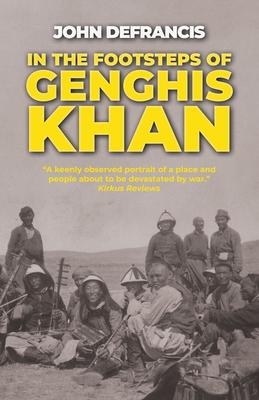John DeFrancis (1911-2009) was a legendary sinologist, linguist, and educator. His many works - the landmark ABC Chinese-English Dictionary and his myth-busting The Chinese Language: Fact and Fantasy among them - changed perceptions of Mandarin and the way it was taught.
DeFrancis overcame a poor childhood - his Italian immigrant father was a laborer who died when DeFrancis was very young and his mother was illiterate - to attend Yale, where he studied economics. He headed to China in 1933, looking to learn Chinese and land a job in business. A chance meeting with H. Desmond Martin, an eccentric young Canadian military historian, would provide DeFrancis with his seminal China experience and steer him toward his life's career. Martin's plan was to retrace the route of Genghis Khan and his invading army through the Mongolian borderlands and northwestern China.
The resulting journey - six months over four thousand miles - was much longer, more arduous, and more dangerous than the pair had originally planned. Along the way, they trekked with camels for a thousand miles across the summertime furnace of the Gobi Desert, explored the ruins of Khara-Khoto (Marco Polo's Lost City of Etsina), visited the westernmost pass of the Great Wall, were held captive by a warlord, and evaded warring armies by rafting twelve hundred miles down the bandit-infested Yellow River on inflated sheepskins.
In the Footsteps of Genghis Khan is a delightful, old-fashioned adventure told with gentle humor, uncommon sympathy for the local people, and expert knowledge wielded with a light touch. DeFrancis' remarkable journey was made amid the chaos of the last days of old China as warlords, Communists, Nationalists, and the Japanese vied for control, as even greater clouds of war gathered. This travelogue remains a valuable description of China's wild Northeast before it was closed to outsiders and the old ways disappeared.
